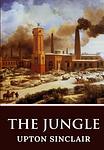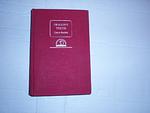Upton Sinclair
Upton Sinclair was an American writer, political activist, and the 1934 Democratic Party nominee for Governor of California. Born on September 20, 1878, he gained fame for his classic muckraking novel, 'The Jungle' (1906), which exposed the harsh conditions and unsanitary practices in the American meatpacking industry. This work led to significant reforms, including the passage of the Pure Food and Drug Act and the Meat Inspection Act. Sinclair wrote nearly 100 books across various genres and was a committed advocate for social justice and reform throughout his life. He passed away on November 25, 1968.
Books
This list of books are ONLY the books that have been ranked on the lists that are aggregated on this site. This is not a comprehensive list of all books by this author.
-
1. The Jungle
This novel exposes the harsh conditions and exploited lives of immigrants in the United States in Chicago and similar industrialized cities. The protagonist, a young Lithuanian immigrant, works in the meatpacking industry and experiences the extreme poverty, poor working conditions, and lack of social services. The narrative explores the corruption of the American meatpacking industry in the early 20th century and the hardships faced by the working class, leading to significant public outcry that contributed to the passage of the Pure Food and Drug Act.
-
2. Dragon's Teeth
"Dragon's Teeth" is a historical novel set during the rise of Nazi Germany, following the life of a wealthy American named Lanny Budd. Lanny, who is politically connected and fluent in several languages, becomes involved in the political intrigue of the era, including the machinations of Hitler and his inner circle. The novel explores the political, economic, and social conditions that allowed the Nazi party to rise to power, and the consequences for those who stood in its way.

